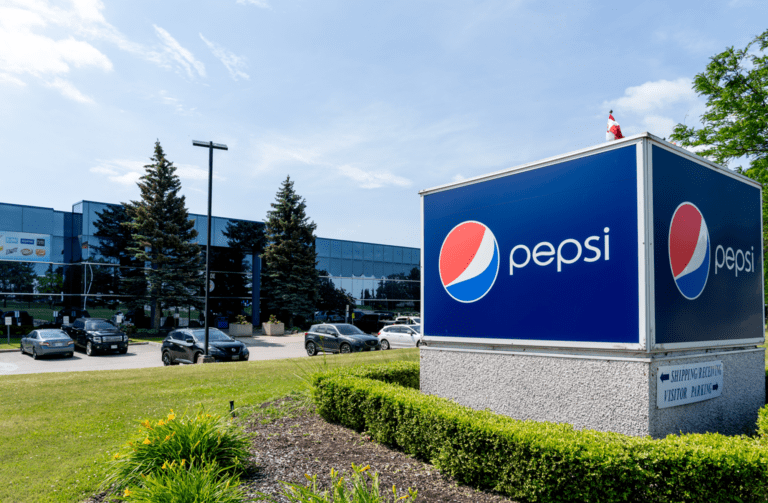
Last week we posted an article discussing why some experts believe technology spending could remain steady in 2023. (READ ARTICLE HERE)
Despite any uncertainties many may have had, this bold statement continues to gain traction in the early days of the new year as yet another company adds its name to the growing list of major players looking to start — or continue — to invest in digital in 2023.
$247 billion conglomerate, PepsiCo (the American multinational food, snack and beverage corporation) recently made headlines in industry outlets after giving readers a sneak peek at the progress of their ambitious companywide 5-year digital transformation.
When discussing the move to digital, PepsiCo officials reiterated their high hopes that a heavy focus on digital in 2023 will help transform their business into a “next generation company.”
The project is being spearheaded by the company’s new Transformation Chief Athina Kanioura.
Kanioura was brought to PepsiCo after being hired away from IT and Fortune Global 500 company Accenture to serve as the food and beverage multinational’s first chief strategy and transformation officer.
Kanioura noted the struggles she’s faced getting this project up and running after working to earn the trust of her team, stating her belief that coming from outside the company helped her bring in fresh ideas to a group of people who had potentially become “embedded into the ways of working successfully.”
PepsiCo and Kanioura continue working to check off all the necessary tasks to reach their digital transformation goals in 2023. All while inching closer and closer to the halfway mark of their daunting 5-year project.
Such tasks include working towards developing a modernized data and cloud infrastructure with automated process and workflow capabilities.
Having already moved upwards of 5,000 applications to Microsoft Azure, the food and beverage giant looks to continue applying predictive analytics, AI, robotics and process automations into many of their business operations.
Reflecting on the company’s progress, Kanioura believes her team has already begun seeing results, noting improvements in speed, flexibility and agility, while reducing on-demand forecasting from weeks to days or even hours. All while feeding its supply chain more accurately and frequently.
With this progress, however, comes hesitation and anxiety from some within the company.
Like so many industry leaders going through this process, Kanioura continues to stress that automation does not mean replacement of the company’s workforce. In fact, she and her team are working to upskill their 300,000+ global employees to better prepare them for the digital age.
“We are upskilling every employee of PepsiCo, whether you know someone who sits in company headquarters or you’re sitting in a plant or out selling our products,” says Kanioura.
This reassurance and overall attitude of investing in, not only the company itself, but those who work to make it the success it is, has left many of PepsiCo’s loyal and longtime employees feeling a bit more secure.
This conversation is just part of the automation process, however, as the very word “automation” has become tainted to many employees who believe the term is synonymous with the word replacement.
In many cases, this could not be further from the truth.
While IDC analyst Craig Powers does admit that, yes, an increase in automation could potentially lead to some job loss, many companies are sincerely trying to upskill their employees to retain the institutional knowledge necessary to realize the growth a digital transformation is designed to generate.
In fact, as with PepsiCo, many companies are finding that freeing up their staff a bit has provided the ideal opportunity to better train said employees, making them better candidates for advancement and, ultimately, happier workers.
During a conversation with CIO, senior data analyst in PepsiCo’s People Analytics division, Ashley McCown discussed launching the company’s latest training platform, Digital Academy, which over 27,000 employees have already participated in.
McCown reflects, “I was always passionate about advanced analytics and took courses where I augmented my digital skills and acquired new ones. These new skills enabled me to take on a new role where I am able to leverage advanced analytics to solve HR problems.”
Like McCown, several other PepsiCo employees could soon find themselves being trained within their company and, as a direct result, being moved to positions with higher responsibilities and higher salaries.
… And this can be true for any company that participates in such an undertaking.
A company that participates in a digital transformation opens up a world of opportunities for, not just their staff, but for the company itself.
After all, a happy worker is more likely to produce a better product. And a better product is more likely to produce a more consistent profit.
In the end, it’s a win-win for everyone involved.
The future looks bright for PepsiCo and other industry leaders working to future-proof their facilities by investing in digital.
But don’t take our word for it…
When asked about PepsiCo’s digital transformation journey thus far, Kanioura responded that she felt the past two plus years had laid the groundwork for a newly evolved and insight-driven enterprise.
For her personally, however, the most impactful achievement through this process has definitely been fostering employee trust across the entirety of the company.
“I didn’t get too much resistance and that’s the toughest thing – to grow with what we were proposing. If you’re going to bet parts of your business and part of your critical business to a transformation like this, you need to be convinced that it will not cannibalize or disturb your growth trajectory.”
If the past two years have proven anything – especially in the case of PepsiCo — it’s that digital automation will be a crucial consideration for any manufacturing transformation for the foreseeable future.
P.S. No matter the size of your company, if you’re interested in learning how a digital transformation could help you, make sure to reach out to the team at Rain Engineering.
Their years of manufacturing experience are just what you need to get your business’s digital transformation started.
CLICK HERE to learn more about what Rain Engineering can do to help your company become the success story you’ve always dreamt it could be.
